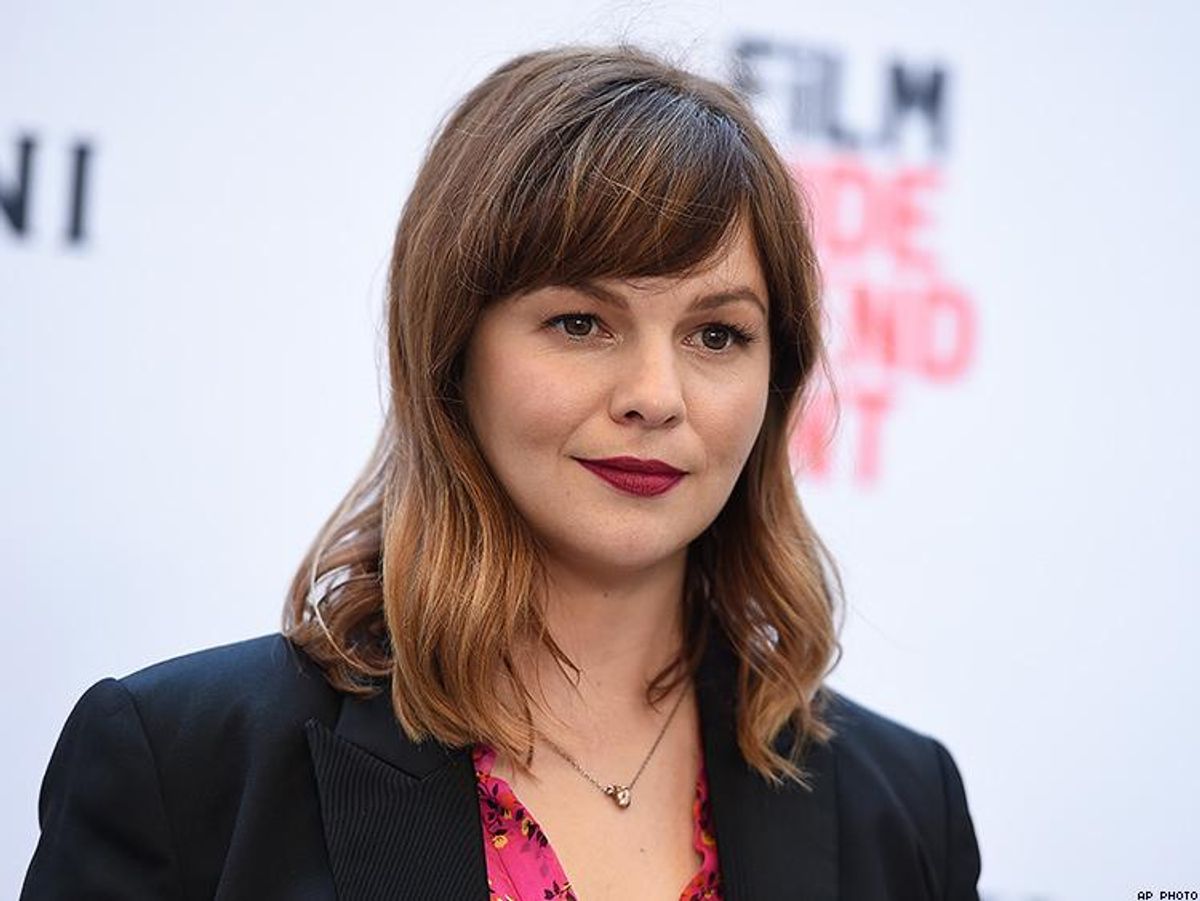Last week was a big one in terms of attempts to silence women. The calls for Hillary Clinton, whose book was released and who was on a promotional tour, to "shut up" and "go away" from the right and the left were deafening. But actress Amber Tamblyn also picked up the mantle of fighting for women's voices to not only be heard but also believed, in response to James Woods calling her a liar for relating a story about how the virulently anti-LGBT actor with a predilection for dating young women had invited her to Las Vegas knowing she was just 16 years old. Tamblyn's rejoinder to his calling her a liar was an open letter to him for Teen Vogue, but this weekend she went a step further and penned an opinion piece for The New York Times highlighting the systemic problem of failing to believe women who speak out about sexism and abuse.
Tamblyn (Sisterhood of the Traveling Pants, House, Two and a Half Men) began her piece for the Times with an anecdote about mustering up the courage to approach a TV producer on set when she was just 21 and tell him that a crew member had been crossing boundaries like entering her trailer when she wasn't there and showing up at her apartment. The producer's reply to her story was "Well, there are two sides to every story," wrote Tamblyn, 34.
"For women in America who come forward with stories of harassment, abuse, and sexual assault, there are not two sides to every story, however noble that principle might seem. Women do not get to have a side. They get to have an interrogation," Tamblyn wrote. "Too often, they are questioned mercilessly about whether their side is legitimate. Especially if that side happens to accuse a man of stature, then that woman has to consider the scrutiny and repercussions she'll be subjected to by sharing her side."
The impetus for Tamblyn's piece occurred nearly a week ago when noted homophobe Woods tweeted his disgust with the new film Call Me by Your Name from acclaimed director Luca Gaudagnino (I Am Love, A Bigger Splash), which features a burgeoning romance between a 24-year-old played by Armie Hammer and a 17-year-old (Timothee Chalamet).
Woods tweeted that Call Me by Your Name and queer people aimed to "quietly chip away the last barriers of decency," adding the hashtag "#NAMBLA," the acronym for the pedophiliac group called the North American Man/Boy Love Association, thereby suggesting that LGBT people are pedophiles. But Hammer soon called out his hypocrisy, pointing out that Woods has a proclivity for dating very young women, and Tamblyn jumped in with the story about Woods inviting her and a friend to Las Vegas when she was underage. As Tamblyn tweeted, when she informed the actor that she was just 16, he replied, "Even better."
Woods has since called Tamblyn's recollection of the event a lie, but she refused to be silenced. Rather, she highlighted the hazards women navigate daily:
"Every day, women across the country consider the risks. That is our day job and our night shift. We have a diploma in risk consideration. Consider that skirt. Consider that dark alley. Consider questioning your boss. Consider what your daughter will think of you. Consider what your mother will think of what your daughter will think of you. Consider how it will be twisted and used against you in a court of law. Consider whether you did, perhaps, really ask for it. Consider your weight. Consider dieting. Consider agelessness. Consider silence."
Despite the landmines Tamblyn laid out that women face, she ended her piece with a call to action, a first step being her refusal to back down from Woods or from any attempt to belittle, gaslight, or silence her.
"The women I know, myself included, are done...," Tamblyn wrote. "We are learning that the more we open our mouths, the more we become a choir. And the more we are a choir, the more the tune is forced to change."



















































































Here's our dream all-queer cast for 'The White Lotus' season 4